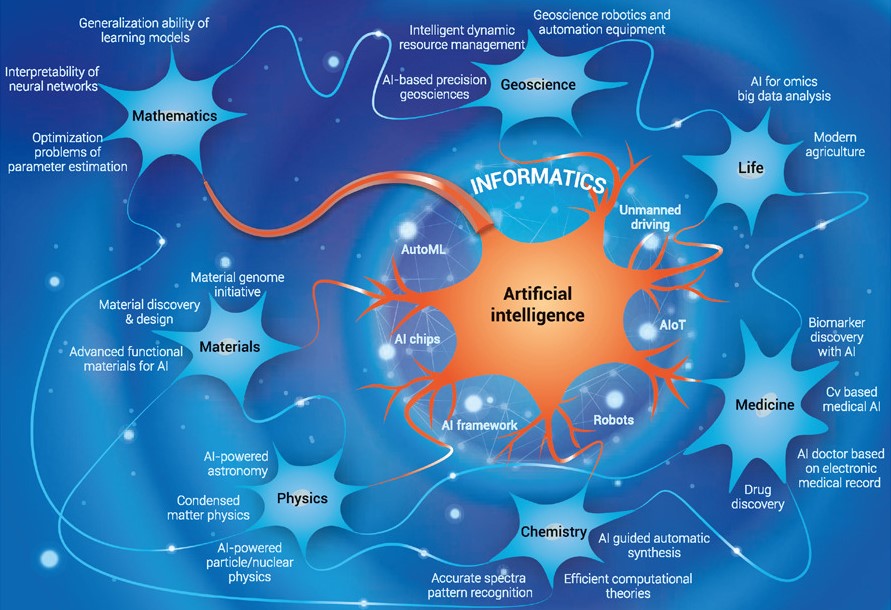Creating a Unified Framework for Human-Centered AI
Artificial Intelligence (AI) has become an integral part of our lives, impacting various sectors and industries. As AI continues to advance, it is crucial to ensure that its development, deployment, and use align with human rights principles and ethical considerations. To achieve this, fostering collaboration and dialogue among AI developers, human rights advocates, and policymakers is essential.
A.I
Nigel John Farmer
12/22/20233 min read
Collaboration among AI developers, human rights advocates, and policymakers is vital for several reasons:
1. Ethical AI Development
By bringing together AI developers, human rights advocates, and policymakers, we can ensure that AI technologies are developed in an ethical manner. Collaboration allows for the identification and mitigation of potential human rights risks and biases in AI systems. It enables the integration of human rights considerations into the design and implementation of AI algorithms and models.
2. Informed Policymaking
Collaboration between AI developers, human rights advocates, and policymakers facilitates informed policymaking. It enables policymakers to understand the technical aspects of AI and its potential impact on human rights. By engaging in dialogue, policymakers can make informed decisions regarding AI regulations, ensuring that they strike a balance between innovation and protecting human rights.
3. Accountability and Transparency
Collaboration fosters accountability and transparency in AI development and deployment. By involving human rights advocates and policymakers, AI developers can be held accountable for any potential violations of human rights. Collaboration also promotes transparency in AI systems, allowing for audits and assessments to ensure compliance with ethical standards.
Methods to Foster Collaboration and Dialogue
1. Establishing Multidisciplinary Platforms
To foster collaboration, it is essential to establish multidisciplinary platforms where AI developers, human rights advocates, and policymakers can come together. These platforms can take the form of conferences, workshops, or working groups. Such platforms provide a space for dialogue, knowledge sharing, and the exchange of ideas.
2. Encouraging Open Communication
Open communication is key to fostering collaboration and dialogue. AI developers, human rights advocates, and policymakers should be encouraged to share their perspectives, concerns, and expertise openly. This can be facilitated through regular meetings, forums, and online platforms where individuals can engage in discussions and debates.
3. Promoting Education and Awareness
Education and awareness play a crucial role in fostering collaboration. AI developers, human rights advocates, and policymakers should be provided with opportunities to enhance their understanding of each other's fields. Workshops, training programs, and educational resources can help bridge the gap between technical knowledge and human rights expertise.
4. Engaging in Policy Dialogue
Policy dialogue is essential for aligning AI development with human rights principles. AI developers, human rights advocates, and policymakers should engage in ongoing discussions to address ethical challenges, regulatory frameworks, and the impact of AI on human rights. This dialogue can lead to the development of guidelines and policies that promote responsible AI development and deployment.
5. Collaboration in Research and Development
Collaboration in research and development can foster a deeper understanding of the ethical implications of AI. AI developers, human rights advocates, and policymakers can work together on projects that explore the social, legal, and ethical dimensions of AI. This collaboration can lead to the development of tools, methodologies, and frameworks that promote the responsible use of AI.
Challenges and Considerations
While fostering collaboration and dialogue among AI developers, human rights advocates, and policymakers is crucial, there are challenges and considerations to keep in mind:
1. Diverse Perspectives
AI developers, human rights advocates, and policymakers may have different perspectives and priorities. It is essential to create an inclusive environment where all voices are heard and respected. Balancing these diverse perspectives can be challenging but is necessary for effective collaboration.
2. Technical Complexity
AI development involves technical complexities that may be challenging for human rights advocates and policymakers to fully grasp. It is important to bridge this knowledge gap through education and training programs that enhance the understanding of AI technologies and their implications.
3. Resource Constraints
Fostering collaboration requires resources, including funding, time, and expertise. Limited resources can pose challenges in establishing and sustaining collaborative platforms. Efforts should be made to secure adequate resources to support ongoing collaboration and dialogue.
4. Evolving Nature of AI
AI is a rapidly evolving field, and keeping up with its advancements can be demanding. Collaboration and dialogue need to be ongoing to address emerging ethical challenges and adapt to the evolving nature of AI technologies.
Conclusion
Fostering collaboration and dialogue among AI developers, human rights advocates, and policymakers is crucial for the responsible development and deployment of AI technologies. By working together, we can ensure that AI aligns with human rights principles, mitigates biases, and promotes transparency and accountability. Through multidisciplinary platforms, open communication, education, and policy dialogue, we can navigate the challenges and harness the potential of AI while safeguarding human rights.
Citations and References:
"AI for Human Rights: Opportunities and Challenges." United Nations Human Rights Office of the High Commissioner, 2022. https://www.ohchr.org/en/statements/2023/07/artificial-intelligence-must-be-grounded-human-rights-says-high-commissioner
"The Future of AI: Advancing Responsible Development and Use." World Economic Forum, 2022. https://www.weforum.org/agenda/artificial-intelligence-and-robotics/
"The Road to Trustworthy AI." International Commission on Artificial Intelligence, 2022. https://icai.ai/
"Responsible AI for a Brighter Future." European Commission, 2020. https://ec.europa.eu/futurium/en/ai-alliance-consultation.1.html



© 2023~2024~2025~2026 MeditatingAstronaut.com - All Rights Reserved Worldwide
website by Meditating Astronaut Publishing
